MIT SCHOOL OF HUMANITIES, ARTS, AND SOCIAL SCIENCES
Media + Awards Digest | April 2020
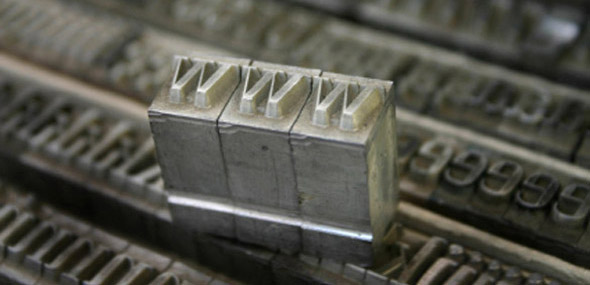
The Media + Awards Digest is a section of the Said and Done newsletter. Subscribe
Office of the Dean | 16 April 2020
Dear Friends,
The coronavirus pandemic is now affecting nearly all aspects of our lives, from our daily routines to the economy, education, healthcare system, electoral process, and other bedrocks of society. As we navigate this crisis, I continue to be moved by the extraordinary responses across the Institute, the broader academic community, and the world. In our own School, while shifting from physical classrooms to online teaching practices, our faculty are also steadily providing insight and resources for policy makers and for better public understanding of the impacts of the pandemic.
Over the last month economists Esther Duflo, Jonathan Gruber, and David Autor contributed research-based views to Marketplace, NPR, WGBH Boston Public Radio, The New York Times, and The Washington Post. Election expert Charles Stewart III advanced thinking about how to hold safe elections with an op-ed for The Washington Post, an analysis for Lawfare, and interviews with media outlets including The New York Times and the Associated Press.
Justin Reich, director of the MIT Teaching Systems Lab, appeared on WBUR’s “On Point” to discuss distance learning; sociologist Sherry Turkle was interviewed by NBC News and The New York Times regarding life online; CMS/W professor Alan Lightman wrote in The Atlantic about the pandemic’s effect on the pace of our lives; and political science PhD students Rachel Tecott and Erik Sand wrote a Washington Post op-ed on the pandemic and America’s military readiness.
The transformations being wrought by this global pandemic are hard to overstate. Much about our lives and institutions will continue to evolve. Here at the Institute, we will weather this crisis while we contribute to navigating and solving it — and to shaping the changed world that will emerge.
With very best wishes for your well-being, and my sincere thanks for your dedication,
Melissa
Melissa Nobles
Kenan Sahin Dean
Professor of Political Science
MIT School of Humanities, Arts, and Social Sciences
HONORS AND AWARDS
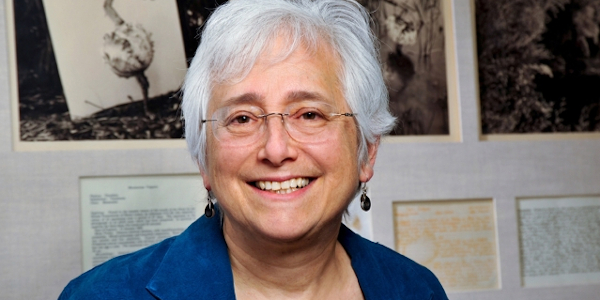
Harriet Ritvo; photo by Jon Sachs, SHASS Communications
HISTORY
Ritvo wins Distinguished Scholar Award from ASEH
Harriet Ritvo, the Arthur J. Conner Professor of History at MIT, teaches courses in British history, environmental history, the history of human-animal relations, and the history of natural history. The author of multiple books, her current research focuses on wildness and domestication.
Ritvo's MIT webpage | American Society for Environmental History
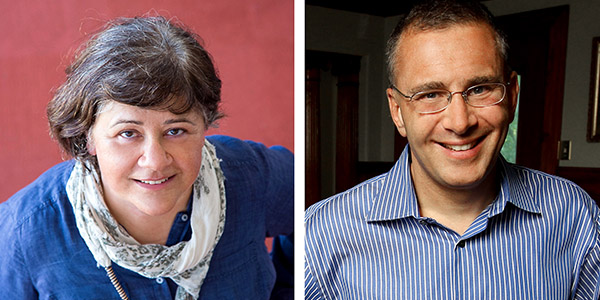
Sabine Iatridou; photo by Jon Sachs; Jonathan Gruber, photo by Bill Greene, The Boston Globe
LINGUISTICS AND ECONOMICS
Sabine Iatridou and Jonathan Gruber named 2020 Guggenheim Fellows
Gruber, Ford Professor of Economics, and Iatridou, Professor of Linguistics, have been selected for the 2020 class of Guggenheim Fellows. Appointed on the basis of prior achievement and exceptional promise, the 2020 Fellows were selected from almost 3,000 applicants.
MIT News | Iatridou profile, Guggenheim site | Gruber profile, Guggenheim site
MEDIA DIGEST | PANDEMIC RELATED PUBLICATIONS
COLLECTED MEDIA PUBLICATIONS
![]()
At-A-Glance List of Pandemic-related Media Publications from MIT SHASS
An ongoing list of commentaries from our School community to inform policy and to increase public understanding of the pandemic.
Collected Publications
HEALTH
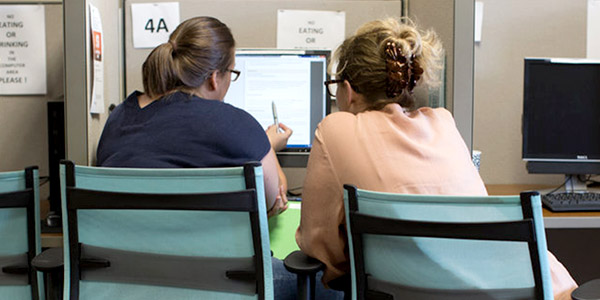
Government assistance program in Ramsey County, Minn; Photo: David Kidd
GOVERNING MAGAZINE
Why we need to ease access to the safety net — now | Amy Finkelstein
MIT health economist Finkelstein writes the economic devastation of the coronavirus pandemic is making benefit programs more important than ever.
Commentary at Governing
NPR | BOSTON PUBLIC RADIO
MIT economist calls for federal sick leave program | Jonathan Gruber
Gruber warns that without federal intervention the lack of economic productivity could lead to a chain of events that ripples through the economy.
Commentary on NPR
WGBH
Stimulus package for healthcare system "won't be enough" | Jonathon Gruber
About the $100 billion dedicated to the country's healthcare system, Gruber said, "The best estimates of the net costs of the coronavirus to our healthcare system are between $100 billion and $500 billion, so clearly $100 billion is at the very, very low end and unlikely to be enough."
Interview at WGBH
EDUCATION
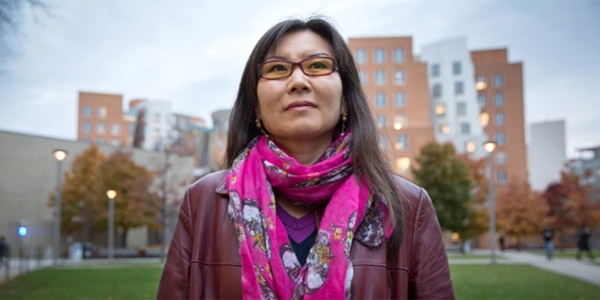
MIT Anthropologist Manduhai Bulandelger
NPR
The biggest distance-learning experiment in history | Justin Reich
On NPR's All Things Considered, Reich, CMS/W Assistant Professor and director of the MIT Teaching Systems Lab, reflects on best practices for remote learning.
Commentary at NPR
AMERICAN ETHNOLOGIST
An ethnology of disruptions | Manduhai Buyandelger
MIT anthropologist Buyandelger tracks racism, virtual realities, and world-building during the pandemic.
Commentary at American Enthnologist
THE WASHINGTON POST
Myths about and best practices for remote learning | Justin Reich
“Young people don’t have the attention or the executive-function skills to be able to sit and learn online for hours every day on their own” when learning from home.
Story at The Washington Post
ELECTION 2020
Media publications with or by Charles Stewart III,
Kenan Sahin Distinguished Professor of Political Science, and Founder, MIT Election Data and Science Lab
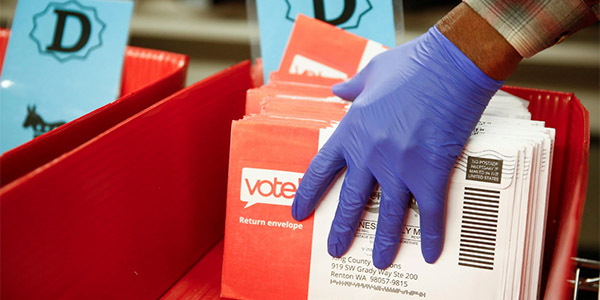
Voting by mail: Currently, five states — Colorado, Hawaii, Oregon, Utah, and Washington — conduct elections almost entirely by mail. Twenty-eight others and the District of Columbia allow voters to cast absentee ballots by mail without providing a reason. Photo: Mail-in ballots being sorted at a processing center in Renton, Wash. Photo: Lindsey Wasson/Reuters
LAWFARE
Ten recommendations to ensure a healthy and trustworthy 2020 election
The country can meet this challenge if Americans begin to prepare immediately."
Commentary at Lawfare
THE WASHINGTON POST
More voting by mail would make the 2020 election safer for our health
"As the novel coronavirus pandemic besieges the United States, more and more observers are suggesting that November’s votes should be cast by mail — allowing the least possible in-person contact, reducing health risks to both voters and poll workers."
Commentary at The Washington Post
THE NEW YORK TIMES
Does vote-by-mail favor Democrats? No. It's a false argument.
Stewart says there is no conclusive evidence that either party would benefit by more voting by mail.
Story at the New York Times
MARKETWATCH
We can rely more on more mail-in ballots for the November election — here’s how
"Postponing the Nov. 3 election is not an option. Both the U.S. Constitution and federal law establish Election Day, and there is no chance Congress could change either in the next months."
Commentary at Marketwatch
Associated Press
Parties mine Wisconsin for clues to voting in the virus era
“It’s harder than we thought to keep people away from voting. People will ask for mail ballots if they’re available to them in larger numbers.”
AP Story
The Guardian
Republicans tried to suppress the vote in Wisconsin. It backfired.
“I think this race showed the value of the belt-and-suspenders approach of making mail voting available for everyone who wants it, but still maintaining as much of an in-person program as possible.”
Story at The Guardian
THE LOS ANGELES TIMES
Coronavirus threatens the November election. Can vote by mail save it?
“Even if people agree this is an emergency and we may need to do this, it’s hard to just wash out of your mind thoughts you have had your entire life,” Stewart said of skeptical elections officials.
Story at The Los Angeles Times
AP NEWS
Switching remaining primaries to vote-by-mail is not so easy
Stewart said the hurdles to implementing voting by mail for all voters is why states might be better off taking only small steps at first. "That could mean simply making absentee ballots easier to get."
Story at AP News
NPR
How primaries are proceeding during a public health epidemic
Stewart comments on the primary process: "In retrospect, it may be that we view these delays as being lifesavers."
Interview at NPR
NBC
Election chaos: Coronavirus fear of voting could keep people from the polls
"It might be at some point you don't push as hard on the mail balloting as you might in order to stay within state norms," Stewart said.
Commentary at NBC
ECONOMIC IMPACTS
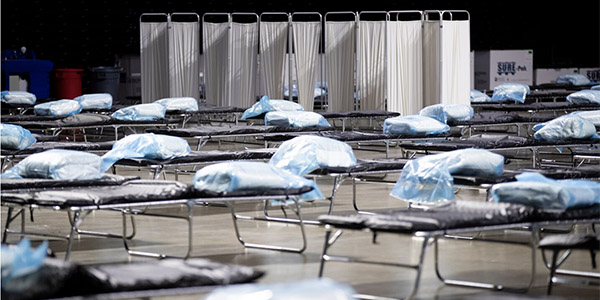
Federal medical station set up at Temple University's arena to accommodate an influx in hospital patients. (Matt Rourke/AP)
THE WASHINGTON POST
How to pay for the coming surge of uninsured patients | Jonathan Gruber
"These are not normal times, Gruber writes. "The number of privately insured is likely to shrink enormously as workers are laid off and lose their employer-sponsored insurance."
Commentary at The Washington Post
MARKETPLACE
How to help the poor amid Covid-19 | Esther Duflo
Duflo, who won the 2019 Nobel Prize in Economic Sciences last year, says governments should start with direct cash transfers to individuals. “There is no trade off in poor countries between helping people sustain themselves financially and getting the health conditions to improve; the two have to go hand in hand.”
Interview at Marketplace
THE NEW YORK TIMES
Covid-19 is twisting 2020 beyond all recognition | David Autor
"Under different circumstances, Autor wrote, "it would be easy to tell a story in which this episode causes Americans to remember that their government is indispensable for marshaling expertise, coordinating emergency measures, guarding public safety, serving as an insurer of last resort, calming financial markets, and generally shepherding its citizens through an extraordinarily challenging time."
Commentary at the New York Times
WGBH
What the federal stimulus package does and doesn't do | Jonathan Gruber
Gruber noted the UBI system may not reach 20 percent of households, potentially people who need the cash most, like those who don't pay taxes or have bank accounts.
Interview at WBBH
NATIONAL BUREAU OF ECONOMIC RESEARCH
What's causing the epidemic curve to flatten in New York City? | Jeffrey Harris
There's evidence the coronavirus curve is flattening in New York City as the number of confirmed cases rises at a slower rate. The key question: Why? In a new paper, MIT economist Jeffrey Harris highlights three potential contributions.
Working paper at NBER
CIVIC PERSPECTIVES
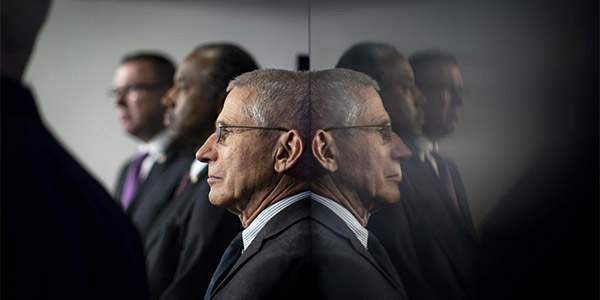
Director of the National Institute of Allergy and Infectious Diseases Anthony Fauci listens during a coronavirus press briefing at the White House, March 2020. Photo: Al Drago, The New York Times
THE NEW YORKER
The pandemic is not a natural disaster | Kate Brown
"In the midst of the coronavirus outbreak, this idea of a body as an assembly of species — a community — seems newly relevant and unsettling. How are we supposed to protect ourselves, if we are so porous? Are pandemics inevitable, when living things are bound so tightly together in a dense, planetary sphere?"
Commentary at The New Yorker
THE WASHINGTON POST
How coronavirus will affect the US military | Rachel Tecott, Erik Sand
Two MIT Political Science doctoral students examine the impact of the Covid-19 virus on America's military readiness: "a pandemic-induced readiness decrease is less likely to be interpreted as a weakening in U.S. resolve than a decline in readiness caused by other factors under U.S. control — like budget cuts or deliberate reallocation of resources from one theater to another."
Commentary at The Washington Post
FOREIGN AFFAIRS
The coronavirus exposed America’s authoritarian turn | Daron Acemoglu
MIT economist and Institute Professor, Acemoglu comments on the U.S. federal response to the coronavirus threat, noting that independent expertise always dies first when democracy recedes.
Commentary at Foreign Affairs
THE ATLANTIC
The attempt to rebrand the coronavirus | Tom Levenson
Author and Professor of Science Writing Tom Levenson writes that the use of the non-scientific term "Wuhan virus" is intended to label Covid-19 as a Chinese scourge — ignoring, and stirring up, an ugly history.
Commentary at The Atlantic
DAILY LIFE
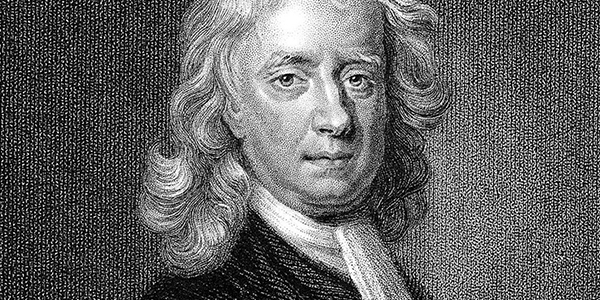
Isaac Newton
THE NEW YORKER
The truth about Isaac Newton’s productive plague year | Tom Levenson
Author and MIT Professor of Science Writing Tom Levenson writes that the idea that the plague woke the brilliance in Newton is both wrong and misleading.
Commentary at The New Yorker
THE NEW YORK TIMES
Curating our vision of isolation | Sherry Turkle
Turkle, a professor of social science at MIT and the author of Reclaiming Conversation: The Power of Talk in a Digital Age ponders the optics of "Anderson Cooper’s library, Seth Meyers’s landing and Andrew Lloyd Webber’s vibrant striped curtains, and the photos — were those his parents? — on the composer’s piano."
Story at The New York Times
THE ATLANTIC
The virus is a reminder of something lost long ago | Alan Lightman
Author and Professor of the Practice of the Humanities, Lightman writes: "In bad times, innovation can occur in habits of mind as well as in new technologies. The frightening pandemic may be creating such a change now — by forcing many of us [those not on the medical frontlines or in economic distress] to slow down, to spend more time in personal reflection."
Commentary at The Atlantic
NBC NEWS
When the coronavirus pandemic drove life online | Sherry Turkle
MIT Professor Sherry Turkle discusses how the pandemic is inspiring people and groups around the world to use the internet in new and creative ways to connect: "The move online could end up changing what it means to be online," she says.
Commentary at NBC News
The Media + Awards Digest is a section
of Said and Done, the School's online digest.
EXPLORE
Follow us




Subscribe to Said and Done
10 issues a year
Research
Impact
MIT SHASS Research + Perspectives for the Pandemic
Website
Ethics, Computing, and AI: Perspectives from MIT
Browse the Series
Computing and AI: Humanistic Perspectives from MIT
Browse the Series
MIT Climate website | Humanistic research
A major source of research, innovation, and discussion
Join us!
SHASS on MIT News
Research and Features
MIT Campaign for a Better World
Story | Join Us

Published by SHASS Communications
Office of the Dean, MIT School of Humanities, Arts, and Social Sciences
Editor and Designer: Emily Hiestand
Publication Associate: Alison Lanier
Media Relations Manager: Stephen Oakes
Published 16 April 2020